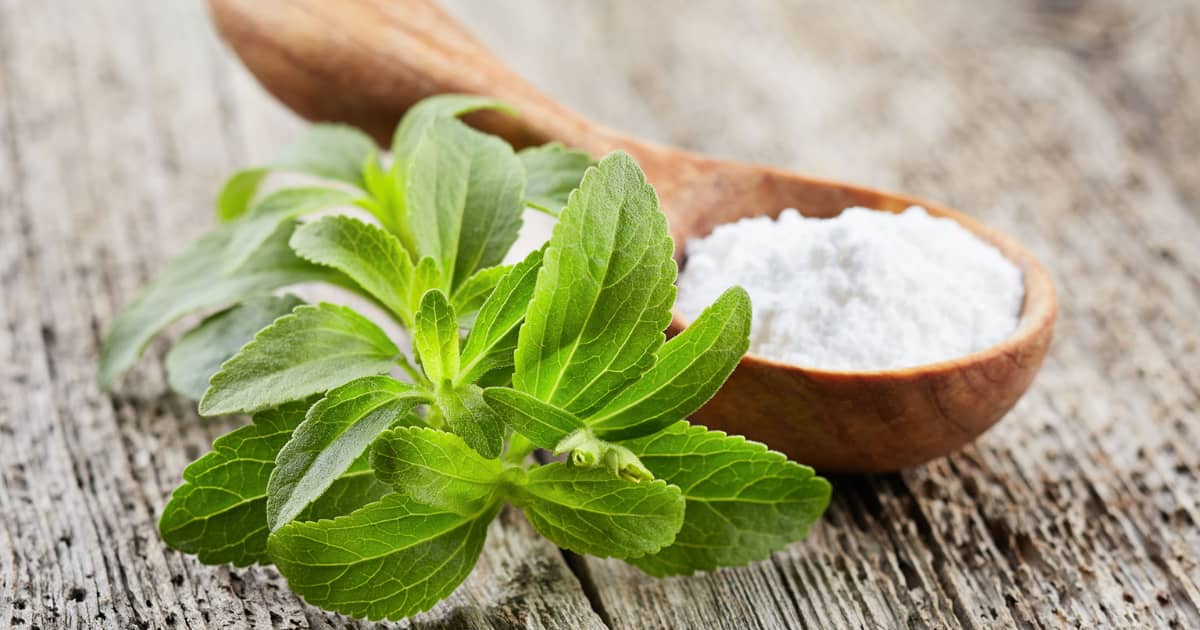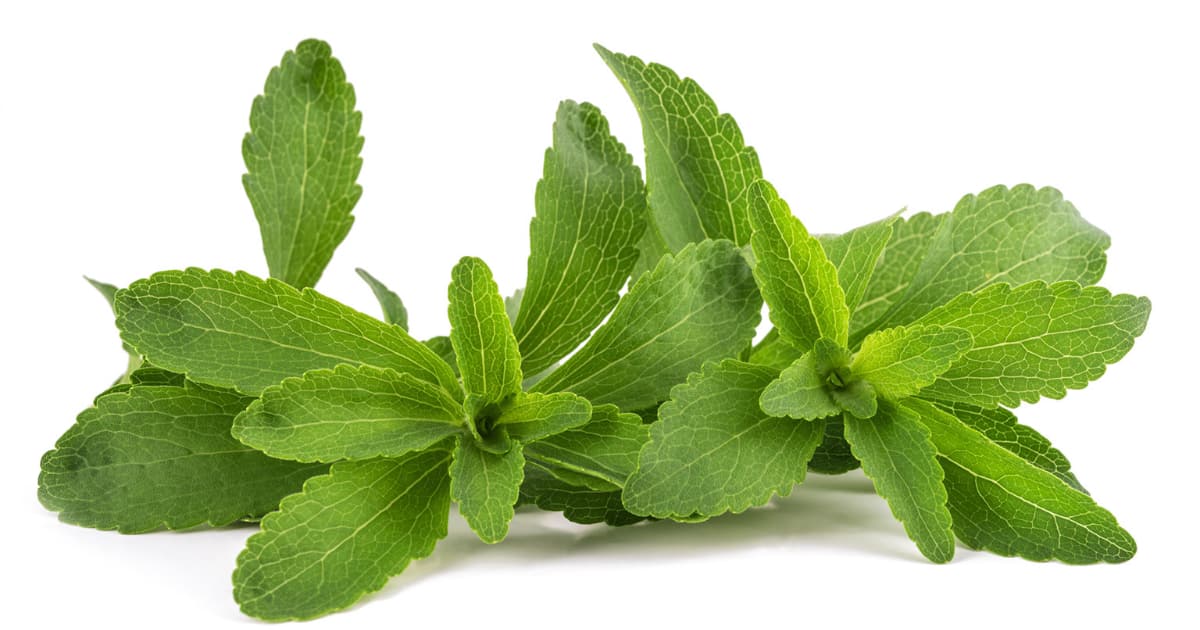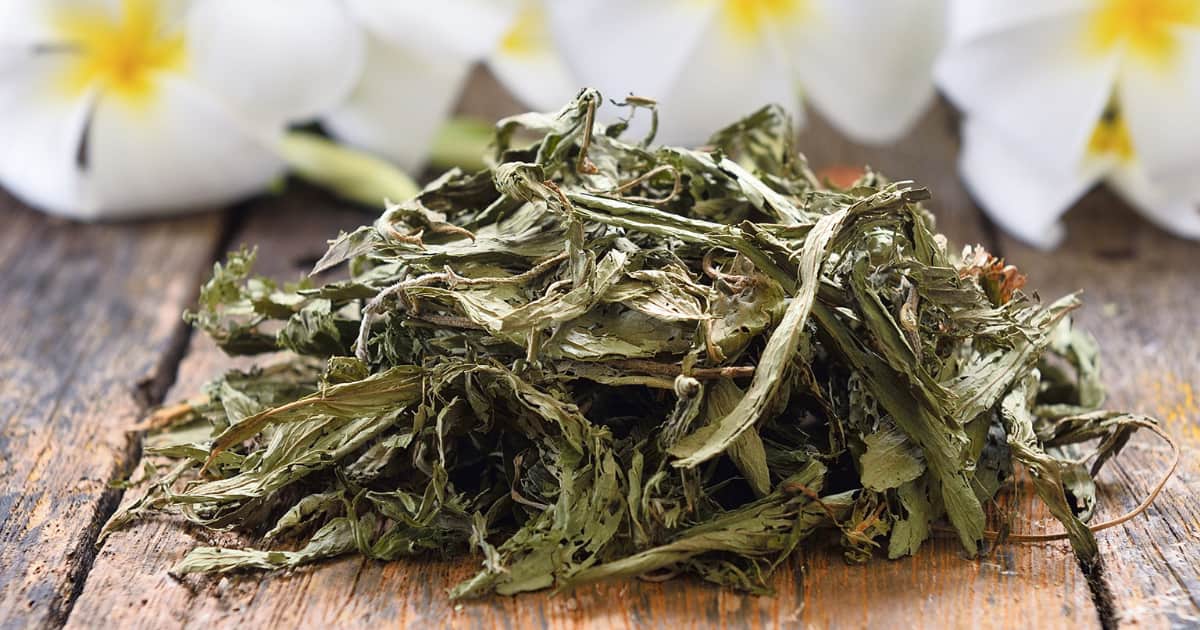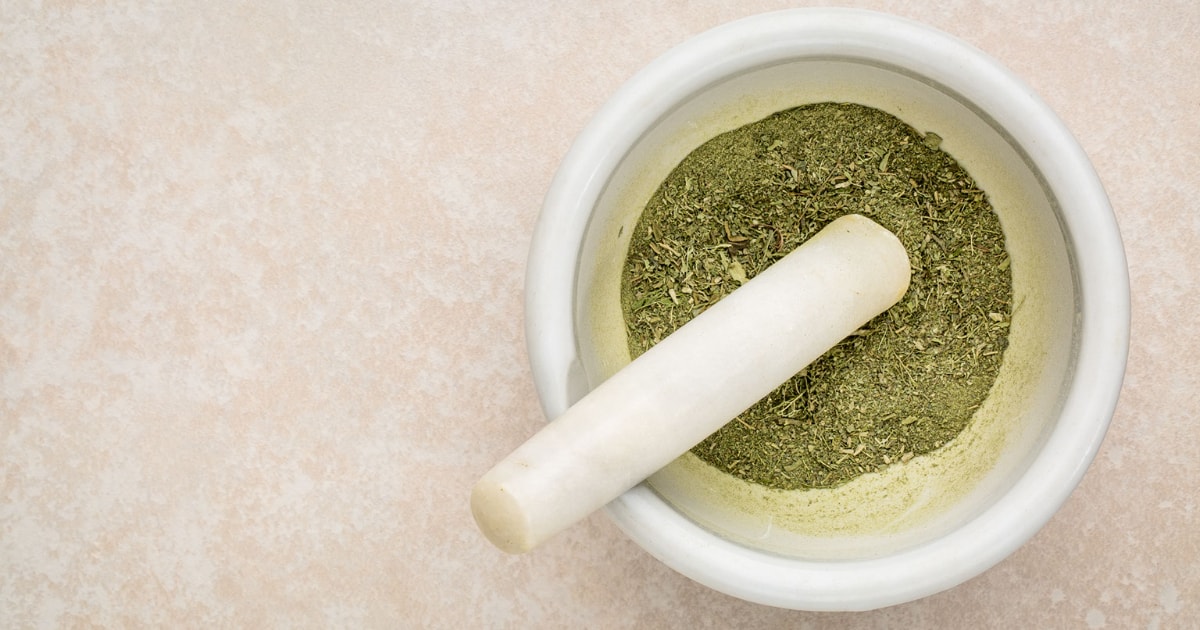Are you searching for a healthier alternative to sugar that has zero calories?
Then, powdered stevia is your answer!
This plant-based sweetener is extracted from the leaves of the Stevia rebaudiana plant and has been used for centuries in South America as an herbal remedy to combat diabetes.
Recently, powdered stevia has gained popularity as a healthier alternative to sugar and other artificial sweeteners.
It can be used in baking, beverages, and desserts; plus, it helps regulate blood sugar levels and aids weight management.

Understanding Powdered Stevia - What Is It?
Powdered stevia is a natural sweetener extracted from the leaves of the Stevia rebaudiana plant. To make it, they dry and grind the leaves into a fine powder that can then be used to sweeten food or beverages, just like sugar would do.
It has zero calories, making it an excellent option for those looking to reduce their calorie intake.
Furthermore, its lower glycemic index than sugar means it won't cause an abrupt spike in blood sugar levels like sugar can.
Benefits of Powdered Stevia as a Natural Sweetener
Stevia has many advantages over sugar, such as having zero calories and being much sweeter.
Therefore, you only need a small amount to achieve the same level of sweetness - perfect for those looking to reduce their caloric intake or regulate blood sugar levels.
It is also an incredibly healthy choice to other artificial sweeteners, which have been linked to various health issues.
Unlike these substances, stevia comes from a natural plant source and has long been used as a traditional remedy for diabetes.
Stevia rebaudiana: The Source of Powdered Stevia
Stevia rebaudiana, commonly called the "sweet herb," is a plant species native primarily to South America but widely grown elsewhere. Its leaves contain natural sweeteners, which give it its nickname.
Stevia is often used as a sugar substitute in food and beverages, as it contains zero calories and tastes 200-350 times sweeter than ordinary sugar.
Indigenous people have also traditionally utilized this plant to treat conditions such as diabetes, high blood pressure, and obesity.
Stevia has also been found to have anti-inflammatory and anti-cancer properties.
With such natural origins and potential health advantages, its popularity continues to grow.
Nonetheless, one should still consume Stevia in moderation, as excessive consumption may negatively affect the body.
Stevia Extract - A Zero-Calorie Sugar Substitute
Stevia extract has become a go-to sugar substitute due to its zero-calorie content, making it ideal for those watching their sugar intake.
Stevia extract, unlike regular sugar, is not metabolized in the body and thus makes an excellent option for individuals with diabetes or trying to shed some pounds.
Stevia extract has become a healthier alternative to refined sugar with its zero-calorie content and natural sweetness. As a result, it is commonly used in baked goods, soft drinks, and other sugar-free desserts.
Powdered Stevia for Baking, Beverages, and Desserts
Powdered stevia is a natural sweetener that is increasingly sought out by those seeking healthier alternatives to sugar.
It is used in baking, beverages, and desserts; its sweet taste provides an enjoyable sensation when used as part of frozen treats, smoothies, or drinks; plus, you can use it in baking as a replacement for sugar, so your treats won't spike blood sugar levels either!
This unique sweetener also makes for healthier cooking while enjoying sweet dishes without increasing blood glucose levels!
As such, powdered stevia helps maintain an active lifestyle while enjoying sweet dishes simultaneously!
Maintaining Your Blood Sugar Levels with Powdered Stevia
Keeping blood sugar levels is essential for overall health and well-being, so avoiding sugary foods and drinks is best.
But if you have a sweet tooth, this might prove challenging!
Fortunately, stevia is an alternative sweetener that helps regulate glucose without raising glucose levels - making it popular among people with diabetes in beverages like coffee or tea, where an extra touch of sweetness makes all the difference.
If you want to improve your overall sugar management, swapping out sugar for stevia in your diet could make all the difference when managing blood glucose.
Powdered Stevia and Weight Management
Stevia has become popular among those seeking an energy-conscious, low-carbohydrate alternative to sugar.
Stevia contains no calories or carbohydrates, making it the ideal sugar substitute for those trying to shed pounds or maintain their metabolism.
By substituting stevia for regular sugar, you'll reduce calorie intake and avoid blood sugar spikes that may lead to unexpected increases in weight.
Stevia has a zero glycemic index, meaning it has no impact on blood sugar levels.
Furthermore, some studies suggest stevia may reduce cravings for sweet foods and promote fullness - leading to less overeating.
Therefore, including powdered stevia in your diet could be an effective way to manage weight effectively.
Are Powdered Stevia Products Keto-Friendly?
Stevia is a natural, non-nutritive sweetener that has grown popular among health-conscious individuals, particularly those on ketogenic diets.
Stevia is ideal for ketosis as it contains low carbohydrates and doesn't spike insulin levels like sugar does, making it an excellent substitute for sugar or other artificial sweeteners.
Additionally, adding stevia into your keto meal plan can aid weight loss efforts, regulate blood sugar levels and lower the risk of type 2 diabetes, making it an optimal choice for anyone wanting to maintain an active lifestyle.
Sugar-Free Recipes with Powdered Stevia
Stevia can be used in many sugar-free recipes for impressive effects.
Here are a few ideas to get you started:
- Sugar-free chocolate chip cookies
- Sugar-free brownies
- Sugar-free lemonade
- Sugar-free hot chocolate
- Sugar-free vanilla ice cream
How to Utilize Powdered Stevia in Your Daily Life
Powdered stevia can be an ideal addition to your daily diet as a natural, zero-calorie sweetener.
If you're trying to reduce your sugar intake but still want sweet flavors, it is the ideal alternative to either sugar or artificial sweeteners.
Its versatility makes it great for adding to foods like teas, coffees, or smoothies.
Baking recipes may require some experimentation for proper measurements, but stevia can and is widely used in baking.
Another excellent use for this natural powder is topping fresh fruit for extra sweetness without additional calories or nutrients.
Ultimately, it offers healthful and convenient solutions for healthy ways to sweeten meals - sprinkle some on top!
how to make powdered stevia: A Step-by-Step Guide
Take a DIY journey to make powdered stevia from fresh Stevia rebaudiana leaves!
Follow this easy-to-follow guide for turning these naturally sweet leaves into a versatile, zero-calorie sweetener for all your recipes.

1. Selecting the Appropriate Stevia Leaves
Selecting the perfect stevia leaf can be tricky when choosing your ingredients for baking or extracting.
Here are some tips to ensure you select the perfect leaves:
Create your powdered stevia by beginning with high-quality, fresh Stevia rebaudiana leaves.
These leaves contain the natural sweetener and form the basis of your homemade stevia powder.
To achieve optimal results, ensure they're free from blemishes, pests, and diseases.
2. Drying Stevia Leaves
This step involves drying the leaves after they have been harvested.
The next step involves drying the stevia leaves to extract moisture, which helps preserve their sweetness.
Place them on a clean tray or screen and air-dry them in an area with low humidity.
Alternatively, you can use a food dehydrator according to the manufacturer's instructions to expedite drying time.

3. Crushing Dried Leaves
Finally, grind up the dried leaves using a rolling pin.
Once the stevia leaves are thoroughly dried and brittle to the touch, they're ready for crushing.
Use a mortar and pestle to grind the leaves into a fine powder; this releases all of the sweet compounds within them for an intense powdered sweetener.

4. Sifting Stevia Powder
Step four involves sifting the Stevia powder until you find it.
Sift the crushed stevia powder through a fine-mesh sieve or filter to get a uniform texture and eliminate any larger leaf particles.
This step ensures a smooth texture when adding powdered stevia to recipes.
5. Storing Your Homemade Powdered Stevia
Storing freshly made stevia powder in an airtight container will protect it from moisture, air, and light damage.
Place the container in a cool, dark, and dry location like a pantry or cupboard to extend its shelf life.
Proper storage also helps preserve the potency and flavor of your homemade powdered stevia.
Where to Find Powdered Stevia
Finding powdered stevia may seem daunting, but it doesn't have to be.
There are several places where it can be purchased in-store and online - health food stores, natural markets, and specialty food stores are ideal places to start your search.
Supermarkets and grocery stores may carry stevia, often located near sugar substitutes in the baking aisle or other natural food items.
Furthermore, many online retailers specialize in natural food items and offer a wide selection of stevia products, including powder.
Before purchasing stevia, it's essential to carefully read the ingredients and nutritional information, as some brands may contain artificial additives or fillers.
With some research and persistence, however, finding powdered stevia may be worthwhile for those searching for an all-natural and healthy alternative to sugar.
Powdered Stevia vs. Other Natural Sweeteners
Powdered stevia is one of many natural sweeteners available on the market.
Here is how stevia stacks up against some other popular choices:
- Honey: Honey is a natural sweetener with antioxidants and numerous health benefits. Unfortunately, it's also high in calories and sugar, so it should be consumed in moderation.
- Maple syrup: Like honey, maple syrup is an antioxidant-rich sweetener. Unfortunately, it also has a high sugar content, so it should be used cautiously.
- Coconut Sugar: Coconut sugar is a natural sweetener with a lower glycemic index than regular sugar, though it still packs on calories and should be consumed in moderation.
- Xylitol: Xylitol is a sugar alcohol commonly used as an alternative to regular sugar. It has low calories and a low glycemic index, making it suitable for regulating blood sugar levels. Unfortunately, some individuals may experience digestive issues when using this option.
Conclusion - Unlocking the Sweet Truth About Powdered Stevia
Powdered stevia is an all-natural sweetener with numerous health benefits. It can help people reduce calorie intake, manage blood sugar levels and maintain a healthy weight.
It is also an all-purpose sweetener used in baking recipes, on your morning coffee, and more - making it a healthy alternative to sugar and other artificial sweeteners.
Why not give it a shot and see for yourself? You might be pleasantly surprised at just how delicious powdered stevia can taste!

